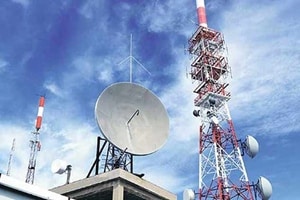Telecom stocks remained under pressure on Friday as well with Bharti Airtel, Idea Cellular and Reliance Communications extending losses following Reliance Industries (RIL) foray into telecom sector with Reliance Jio. Idea Cellular among the telecom stocks hit nearly 4-year-low of Rs 80.85 on NSE. RIL chairman Mukesh Ambani on Thursday during company’s 42nd annual general meeting (AGM) announced the commercial launch of Reliance Jio from Sept 5, 2016 with free voice calling and lower data pricing. Reacting to the news, share price of the 3 telecom incumbents fell on Thursday by eroding market capitalisation of Rs 13,165 cr. On Thursday, Bharti Airtel shares closed 6.37 per cent lower wiping off market cap of Rs 8,454.50 cr, while Idea Cellular shares dropped 10.48 per cent eroding market cap of Rs 3,528 cr. Reliance Communication slumped as much as 8.81 per cent wiping off market cap of Rs 1182.26 cr.
On Friday, telecom shares extended losses with Idea Cellular and Reliance Communications trading 2.63 per cent and 1.32 per cent down at Rs 48.50 and Rs 48.50 at 10.39 am. Bharti Airtel that fell as much as 1.35 per cent in the morning trade recovered and was trading 0.18 per cent up at Rs 311.25 during the same time. Later, Idea Cellular, Bharti Airtel and Reliance Communications ended 0.42 per cent, 2.66 per cent and 0.10 per cent up at Rs 84.05, Rs 318.95 and Rs 49.20.
Religare Institutional Research after Reliance Jio’s launch said that RIL has put to test its $2 billion investments in the telecom business. It said, “While we see significant benefits from RIL’s investments in cyclical businesses (US$ 16bn), RJio’s earnings profile would be critical for its outlook. We maintain BUY rating on RIL on expectations of its core earnings surging from new projects.”
While cautioning on Idea Cellular and Bharti Airtel stocks going forward, the brokerage house also said that RJio’s big-bang entry will bring down average data revenue per user (ARPUs) of Idea and Bharti as they derive 75-80 per cent of revenue from voice and also, usage-oriented data revenue will mean an extended capex cycle.


